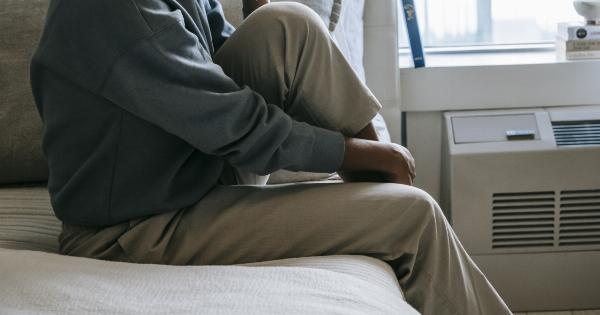Being alone at home for long hours can be a common occurrence for many individuals.
Whether it is due to work commitments, travel, or any other reason, spending extended periods alone at home can have both positive and negative impacts on a person’s mental, emotional, and physical well-being. This article will explore what happens when someone is alone at home for long hours and discuss the potential consequences, benefits, and ways to cope with this situation.
Feelings of Loneliness
One of the most noticeable effects of being alone at home for long hours is the heightened sense of loneliness that can arise.
Human beings are inherently social creatures, and prolonged periods of isolation can lead to feelings of sadness, emptiness, and disconnection. The absence of companionship and interaction with others can trigger a sense of isolation, which may have a detrimental impact on mental health.
Increased Productivity
On the flip side, being alone at home can also provide an opportunity for increased productivity. With fewer distractions and interruptions from others, individuals may find it easier to concentrate and focus on their work or personal projects.
The absence of colleagues or family members can create an environment conducive to completing tasks efficiently and effectively.
Enhanced Creativity
Being alone at home can also stimulate creativity. Without the presence of others, individuals have the freedom to delve into their thoughts, explore new ideas, and engage in activities that fuel their imagination.
This solitude can be a catalyst for innovative thinking, artistic expression, and problem-solving.
Heightened Self-Reflection
Alone time at home allows for self-reflection and introspection. It provides an opportunity to assess one’s thoughts, emotions, and life goals without external influences or distractions.
This period of solitude can lead to heightened self-awareness, personal growth, and a deeper understanding of oneself.
Potential Negative Impacts
Despite the potential benefits, being alone at home for long hours can also have negative impacts on an individual’s well-being. Excessive isolation may lead to feelings of boredom, restlessness, and even depression.
Lack of social interaction and human connection can contribute to a sense of diminished self-worth and overall dissatisfaction with life.
Worsened Mental Health
Extended periods of solitude can exacerbate existing mental health conditions or trigger the onset of new ones. Research has shown that loneliness and isolation can heighten the risk of depression, anxiety, and other mental illnesses.
The absence of social support networks and the constant feelings of emptiness can have a significant impact on a person’s psychological state.
Physical Health Implications
Being alone for extended periods can also affect an individual’s physical health. Without external motivation or the presence of others, individuals may be less inclined to engage in physical activity, leading to a sedentary lifestyle.
Lack of exercise and movement can result in various health issues, such as weight gain, decreased cardiovascular fitness, and increased risk of chronic diseases.
Developing Coping Strategies
To mitigate the negative effects of being alone at home for long hours, it is important to develop coping strategies.
Prioritizing social interactions by scheduling regular outings with friends or family can help combat feelings of loneliness and isolation. Seeking support from others, whether through online communities or professional counseling services, can also provide a sense of connection.
Creating a Structured Routine
Establishing a structured routine can help maintain a sense of purpose and productivity when alone at home.
Setting goals, creating a work schedule, and engaging in meaningful activities can provide a sense of direction and prevent feelings of aimlessness. Breaking up the day with planned breaks and leisure activities can also contribute to a healthier and more balanced lifestyle.
Exploring Hobbies and Interests
Being alone at home offers an excellent opportunity to explore hobbies and interests. Engaging in activities that bring joy and fulfillment can help combat feelings of loneliness and boredom.
From reading and writing to painting or learning a new instrument, there are countless avenues for personal growth and self-expression.
Utilizing Technology and Online Communities
In today’s digital age, technology provides ample opportunities for connection and interaction even when physically alone at home. Utilizing video calls, social media platforms, and online communities can help combat feelings of isolation.
Engaging in virtual activities, joining interest groups or forums, and participating in online classes or webinars can foster a sense of community and alleviate the negative effects of being alone.
Conclusion
Being alone at home for long hours can have both positive and negative impacts on an individual’s well-being.
While solitude can provide opportunities for increased productivity, creativity, and self-reflection, it may also lead to loneliness, worsened mental health, and physical health implications. By developing coping strategies, creating a structured routine, exploring hobbies, and utilizing technology and online communities, individuals can make the most out of their alone time while mitigating the potential negative effects.






























